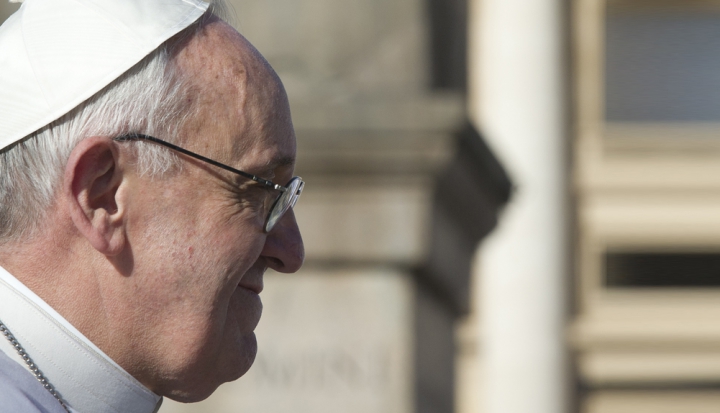Whether by intention or not, Cardinal Jorge Mario Bergoglio’s choice of a papal name has meaning not only for Catholics. St. Francis of Assisi is a widely recognized saint, known for his faith and humility. It’s not surprising that American Protestants also find him appealing.
“I think mainline Protestants are attracted to the same things Catholics are attracted to,” says David Heim, executive editor of the Christian Century. “He seems like such a living witness to the Good News of the gospel and living it out in practical ways.”
Pope Francis’ commitment to social justice and equality, both in his actions and as addressed in Evangelii Gaudium, is attractive to mainline Protestants, Heim says. “That’s a huge point of connection and excitement for mainline Protestants, that he speaks so forcefully and eloquently on [social justice], using his platform, his authority to address that. It’s really great and really healthy for the church.”
While Heim says he doesn’t foresee any formal statements in the near future that bring the American churches closer to Christian unity, he does think that it could happen “at the level of spirit.” American Protestants tend to be more congregational and less interested in juridical statements on theology and church practices being handed down from above. Heim thinks that’s an important point of discussion for the American church. “If he’s really serious about giving national councils of bishops and local councils more authority to decide things at that level, that would be a real sea change,” he says.
Director of the Department of Ecumenical Relations for the Presbyterian Church-USA Rev. Robina Winbush says that Pope Francis’ primary identity is rooted in being a disciple of Jesus Christ; that’s what gives her hope that the new pontiff could mean good things for ecumenism, as does his seemingly outward focus when it comes to the mission of the church.
One of the major obstacles to Christian unity, Winbush says, is individual churches’ desire for institutional survival. “You want certain things in place on the inside. My suspicion, however, is that Pope Francis, while standing on the outside, is also challenging the inside to be different as well.”
This is a sidebar that accompanies “Everybody loves Francis: What the pope’s appeal means for the church” which appeared in the May 2014 issue of U.S. Catholic (Vol. 79, No. 5, pages 12-17).
Image: Flickr photo cc by Jeffrey Bruno















Add comment